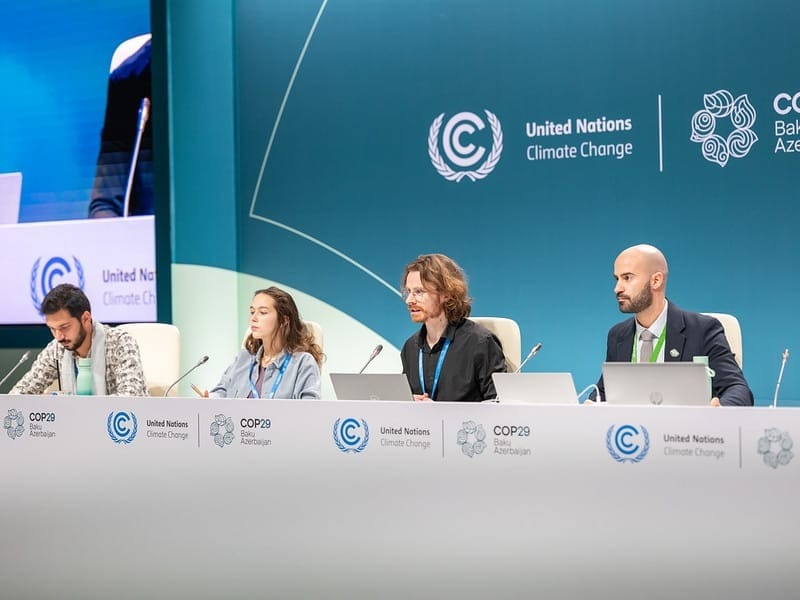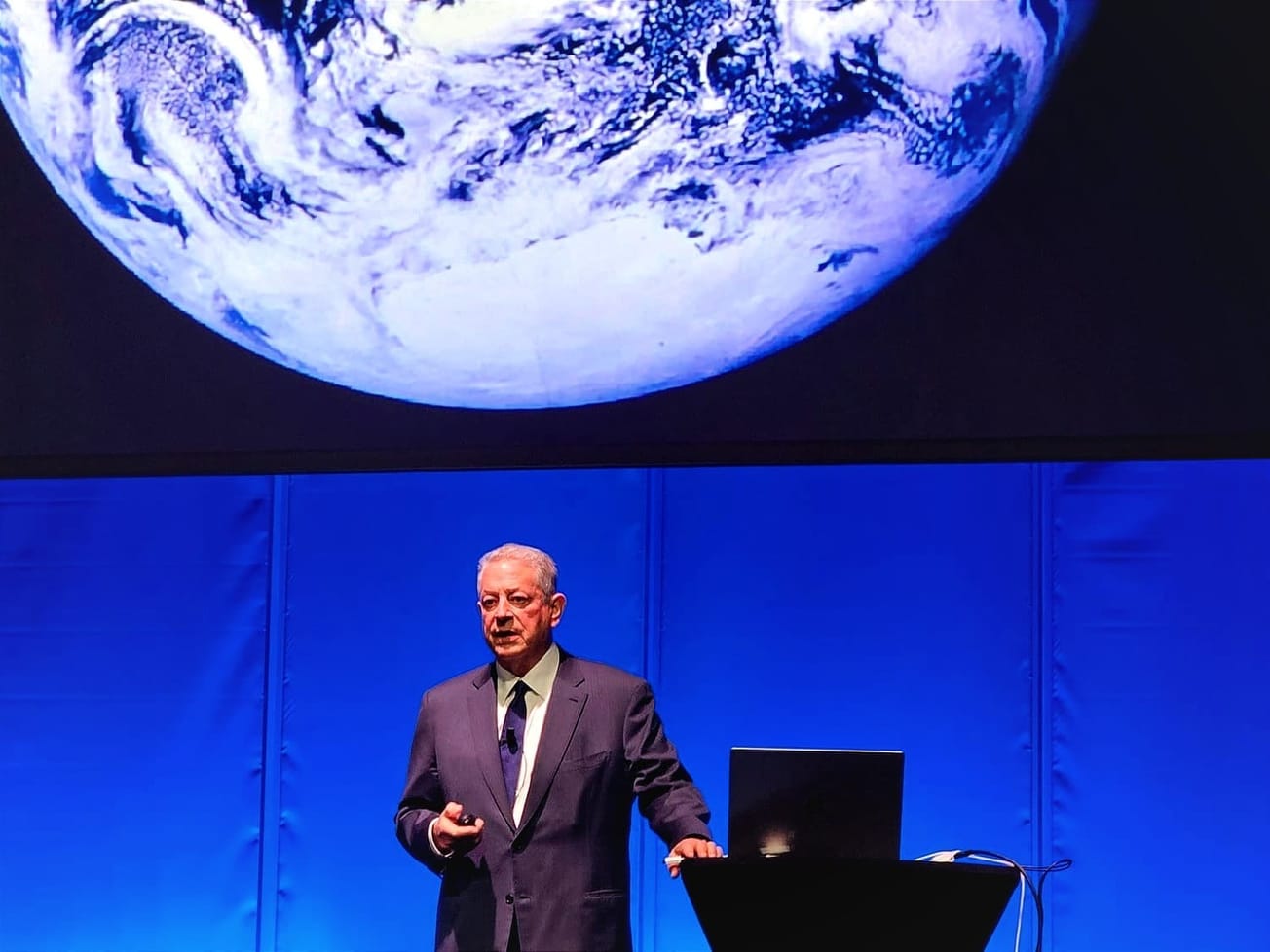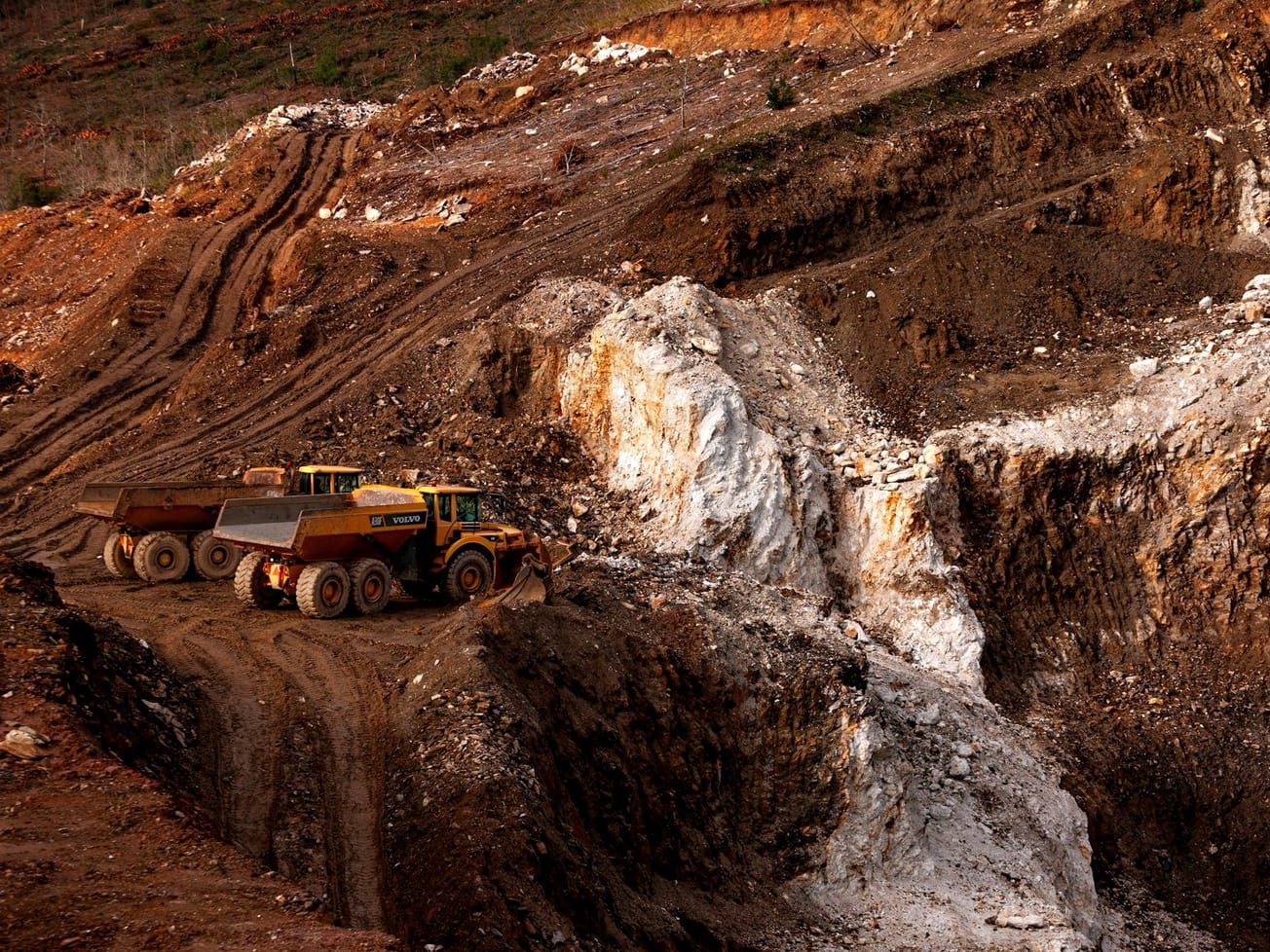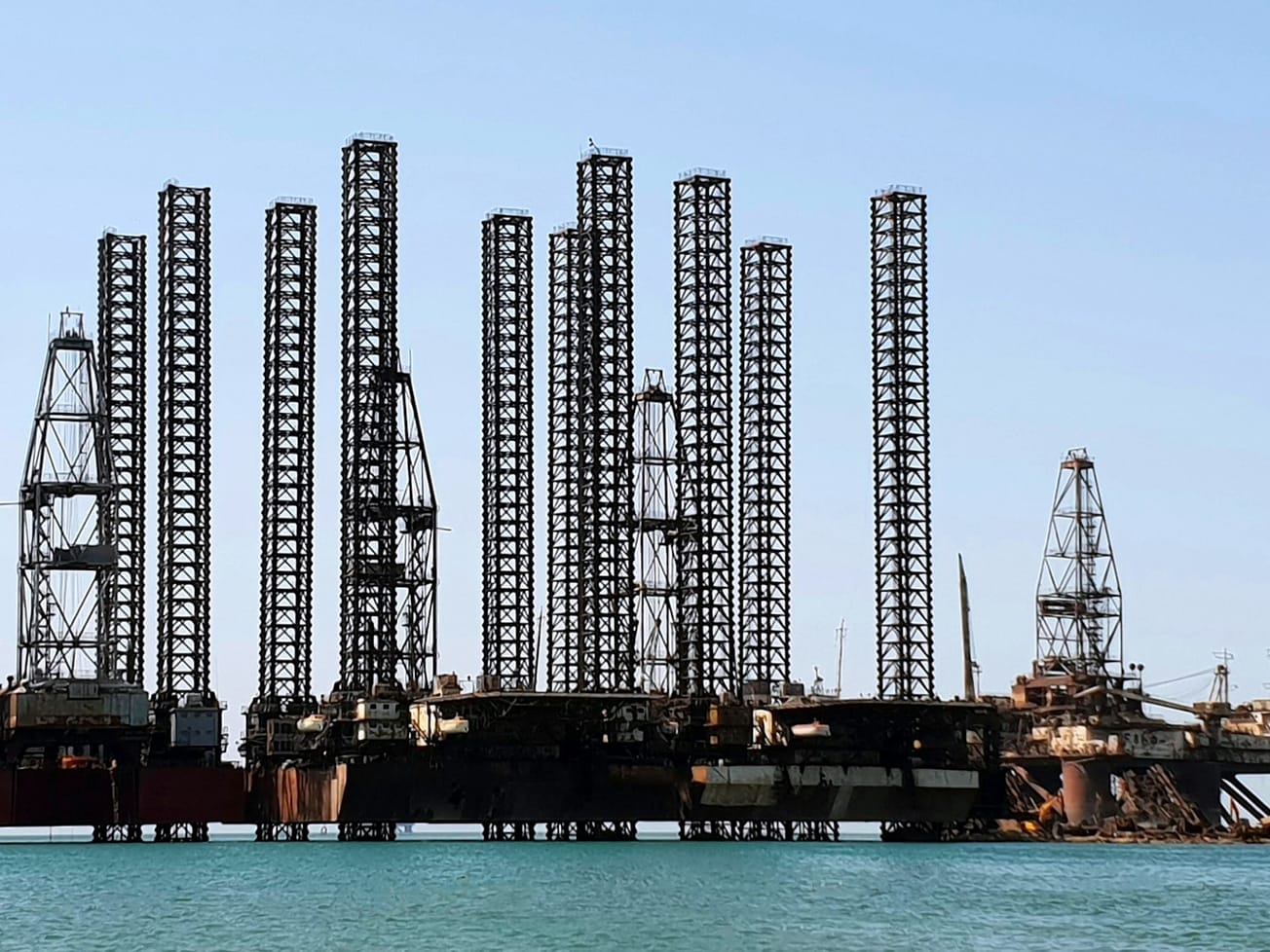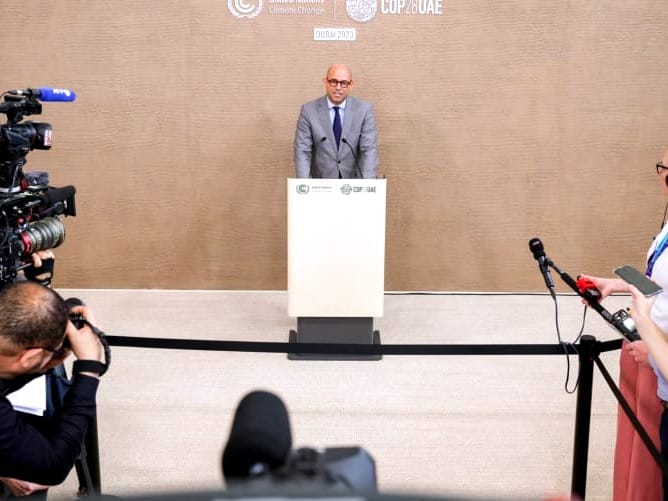
Scattered climate follow-through as more scientists offer grim updates
Record heat and rightward political shifts toward nationalist self-interest undermine efforts to cut fossil fuel dependence.
Already have an account? Log in
Record heat and rightward political shifts toward nationalist self-interest undermine efforts to cut fossil fuel dependence.
Developing nations say the global deal falls short. U.N. chief Guterres says it 'provides a base on which to build.'
Nations have mobilized $100 billion a year for climate financing; now, more than $1 trillion a year may be needed.
After four decades of climate advocacy, the former U.S. vice president still leads global resistance to fossil fuels.
When nations update their pledges to cut greenhouse gas emissions next year, only a massive improvement will work.
A report found a 73% drop in wildlife populations since 1970 and said nations must tackle the climate and nature crises.
A new IEA report shows that tripling renewables and doubling energy efficiency can be achieved with 'enabling' conditions.
A U.N.-led group says the world won't be able to get to net-zero emissions without first cleaning up the mining business.
The U.N. chief urges a tax on fossil fuel profits and ban on fossil fuel ads amid new climate reports of breaching 1.5°.
The wars in Europe and the Middle East, climate change and soaring national debts hung over the annual talks.
Simon Stiell, who heads U.N. climate efforts, envisions winding down his agency into merely a 'data repository'.
The spotlight on gender parity follows Mexico's push last year for a crackdown on harassment at U.N. climate talks.
The COP28 accord calls for weaning the world off burning oil, coal and natural gas 'in a just, orderly and equitable manner.'
Rich nations have pledged less than 0.2% of the $400 billion a year that developing countries need for losses and damage.
'Minutes to midnight': World hits 1.4° of warming as Dubai summit opens with new report disputing a leader's credibility.
A handful of fossil fuel producers show no interest in a strong, restrictive and legally binding instrument for plastic pollution.
